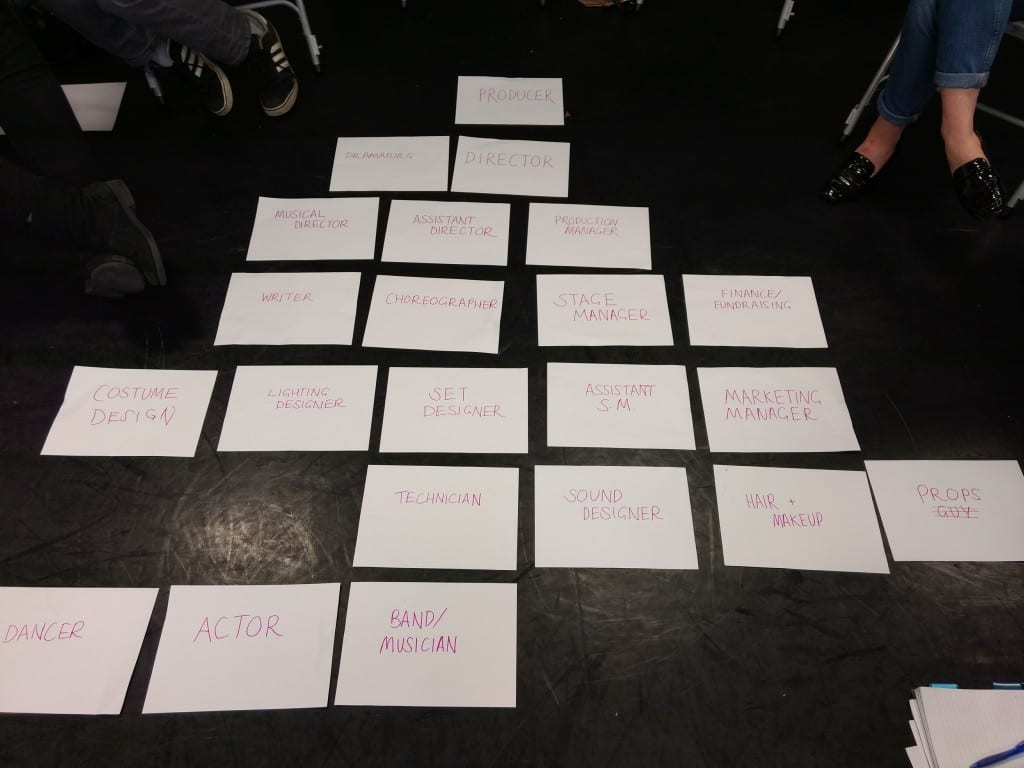Becoming the companies Producer was a mixture of both my own choice and by appointment of the rest of the group. At the time, I knew little of the role and its requirements. I was simply aware that the producer tends to make the ‘final call’ and is responsible for ensuring the team is heading in the ‘right direction’. Because of this, I knew that a good producer would need to be a good leader. Someone who can make decisions but also delegate and push a team to fulfil their own job roles and tasks, making sure they hit deadlines.

Whilst I feel that taking on this role was a huge and daunting challenge, I was willing to accept its responsibility and believed that I had the necessary leadership skills to undertake it successfully. I began researching the role, discovering what would be expected of me and how to good be a successful producer. In his book So You Want To Be A Theatre Producer? James Seabright points out that “[t]he producer is responsible for delivering a good show, on time and in budget” (Seabright, 2011, 5). Despite being a relatively broad definition, his advice gave me direction. I knew I needed to immediately begin to thinking about our budget and planning ways in which we could raise funds for the show. I also started deciding what we would spend the money on, considering how I would divide the funds up between things like marketing costs, props, set and costume.
In addition, Seabright states that a producer is often “involved in every aspect of a show: creatively, financially, administratively, technically and promotionally” (Seabright, 2011, 5). Consequently, I began having regular meetings with each member of the team, discussing their progress and setting them targets and deadlines to hit. I believe that this was important in establishing a consistent expectation and work ethic throughout the process. Furthermore, the quality of communication meant that each department worked alongside one-another, ensuring that one wasn’t relying upon another to complete their task.
Works Cited
Seabright, J. (2010) So You Want To Be A Theatre Producer? London: Nick Hern Books.